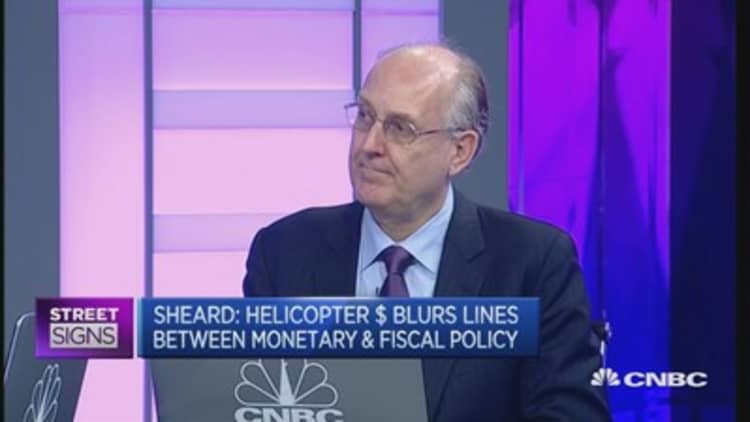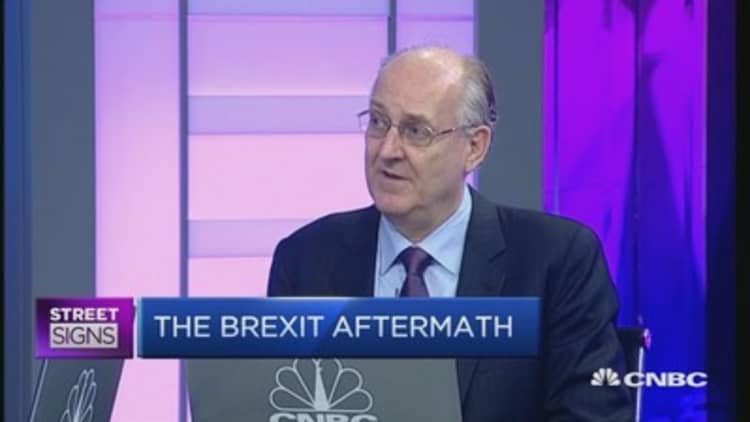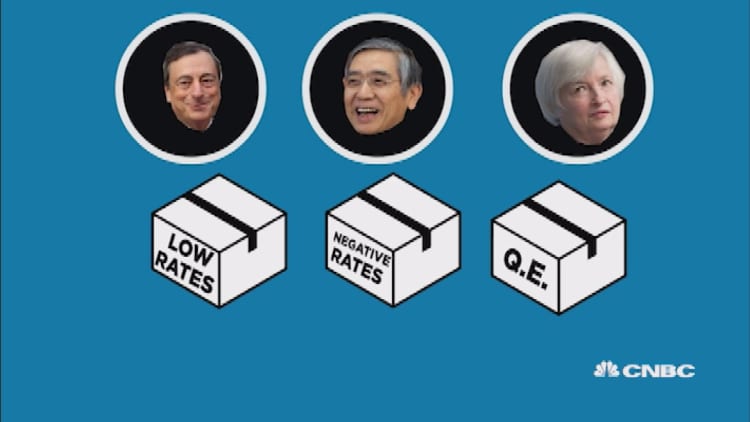


The Bank of Japan (BOJ) is the central bank most likely to adopt "helicopter money" policy but not in its traditional sense, S&P Global's chief global economist told CNBC.
"Helicopter money" is a term coined by Milton Friedman in 1969, and in its purest theoretical form, would involve giving cash directly to residents in order to stimulate growth.
However, in today's context, "helicopter money has to be a kind of monetary policy and fiscal policy coming together as one thing," said Paul Sheard, chief global economist at S&P Global.
Japan is one of the most likely candidate to adopt the unconventional policy, Sheard said.
The economy has struggled with deflation for two decades. Even after the BOJ's massive qualitative and quantitative easing (QQE) program and venture into negative interest rates territory, the Asian economy hasn't been able to boost domestic consumption and shake off deflation.
The impact of last Friday's Brexit outcome, had also led to the Japanese yen to appreciate sharply, blunting the country's export competitiveness.
Sheard explained that Japan is likely to adopt "helicopter money" because "the cornerstone of Abenomics is to mobilize monetary policy and fiscal policy to end this deflation once and for all."
"If it's done through the fiscal authorities, you know tax cuts and bigger budget deficits, with simultaneous quantitative easing, that's actually pretty easy to do within [Japan's] existing framework," he explained.
In Japan's context, fiscal authorities could introduce a form of tax cuts and bigger budget deficits, while the central bank could simultaneously introduce another round of quantitative easing, Sheard explained.
To be sure, the "helicopter money" policy might raise questions about the independence of central banks.
To this, Sheard responded that central banks independence means they can make their own decisions in their committees, but it doesn't give them a free hand to ignore what the government is doing.
"The government and the central bank have to work closely together," he said.

